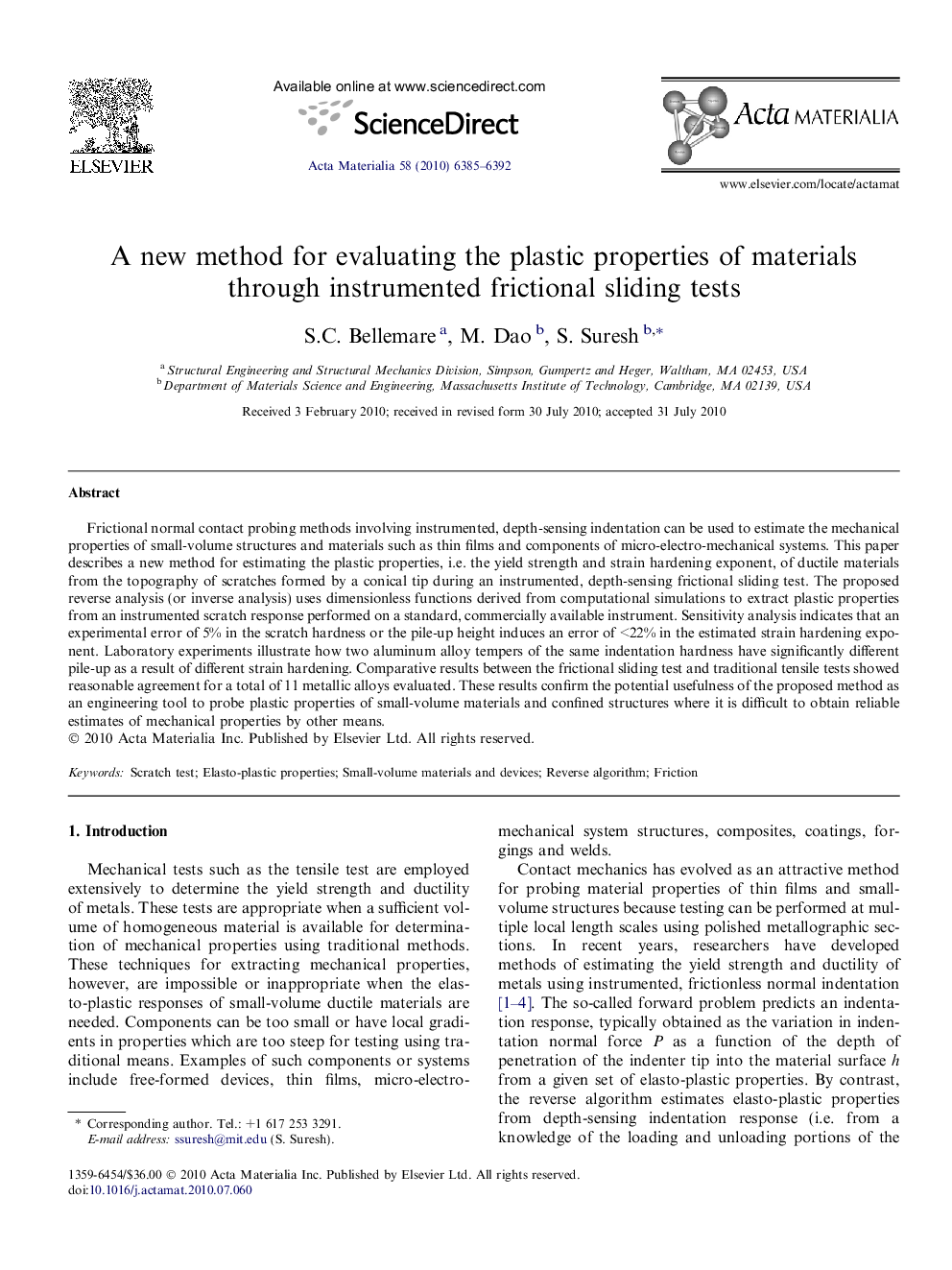| Article ID | Journal | Published Year | Pages | File Type |
|---|---|---|---|---|
| 10620665 | Acta Materialia | 2010 | 8 Pages |
Abstract
Frictional normal contact probing methods involving instrumented, depth-sensing indentation can be used to estimate the mechanical properties of small-volume structures and materials such as thin films and components of micro-electro-mechanical systems. This paper describes a new method for estimating the plastic properties, i.e. the yield strength and strain hardening exponent, of ductile materials from the topography of scratches formed by a conical tip during an instrumented, depth-sensing frictional sliding test. The proposed reverse analysis (or inverse analysis) uses dimensionless functions derived from computational simulations to extract plastic properties from an instrumented scratch response performed on a standard, commercially available instrument. Sensitivity analysis indicates that an experimental error of 5% in the scratch hardness or the pile-up height induces an error of <22% in the estimated strain hardening exponent. Laboratory experiments illustrate how two aluminum alloy tempers of the same indentation hardness have significantly different pile-up as a result of different strain hardening. Comparative results between the frictional sliding test and traditional tensile tests showed reasonable agreement for a total of 11 metallic alloys evaluated. These results confirm the potential usefulness of the proposed method as an engineering tool to probe plastic properties of small-volume materials and confined structures where it is difficult to obtain reliable estimates of mechanical properties by other means.
Related Topics
Physical Sciences and Engineering
Materials Science
Ceramics and Composites
Authors
S.C. Bellemare, M. Dao, S. Suresh,
